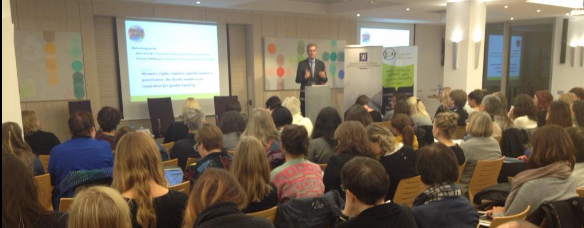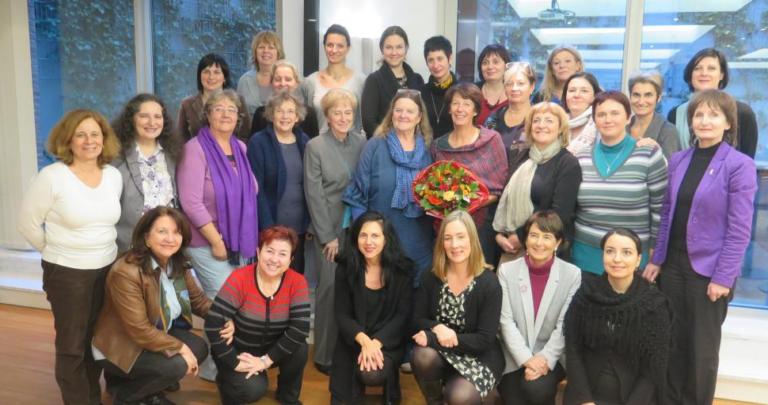[Article translated from Swedish by the blog Liberation Language, original by Erik Magnusson published at sydsvenskan.se on 8 May 2014] Swedish Amnesty goes against the positive view of purchasing sex expressed by Amnesty International.
At its annual meeting in Malmö this weekend, the Swedish section took a clear position against legal prostitution.
Last winter, Amnesty International caused an outcry among Swedish women’s organizations when its International Secretariat in London presented a proposal saying the organization should advocate the decriminalization of the buying and selling of sex.
According to the proposal, it is a human right for both men and women to prostitute themselves and legally sell sexual services.
Legalization is described as a way to grant prostitutes greater autonomy.
Ever since the proposal was presented, the Swedish section of Amnesty International has worked on a consultation response that goes against the parent organization’s proposal. Swedish Amnesty International has endeavored to anchor each syllable in local associations and women’s organizations.
– We take a decision this weekend. We have considered the questions carefully. Our proposal is well established, says Sofia Halth, chairwoman of Amnesty Sweden.
– We are against the policies proposed by the International Secretariat. We propose our own starting points for how we want to work on this issue, she adds.
According to the Swedish official response, it is just right to make it legal to sell sex. It is said to be in keeping with the Swedish Sex Purchase Act and described as “an important step in preventing abuse … committed by police and others.”
By contrast, Swedish Amnesty firmly opposes the decriminalization of buying sex and pimping.
The Swedish Sex Purchase Act has already been copied by Norway and Iceland. Similar legislation is underway in France while Belgium, Finland, Ireland and the UK are also looking to introduce similar laws.
However, there are countries such as Denmark, Holland and Germany where the prerequisites for sex-purchase laws according to the Swedish-Norwegian model are not given.
There is much anger among Amnesty members in Sweden that the organization would globally act to decriminalize the purchase of sex, but Sofia Halth maintains a diplomatic tone in her comments on the proposal by Amnesty’s International Secretariat.
She believes that the proposal’s anchoring in human rights is “inadequate”, that it has a too one-sided focus on legislation, and that the legal issues the proposal refers to are “not clearly enough formulated”.
– In addition, the material has been developed with a selective focus on the research that exists, says Sofia Halth.
Swedish Amnesty is expected to urge the organization to shift its focus on the issue of prostitution at the annual meeting in Malmö.
They want to move from affirming “free choice and consent” to working towards a world in which nobody is forced to sell sex because of discrimination, coercion, violence, vulnerability or poverty.
Swedish Amnesty wants for prostitution to be opposed not only through legislation, but also through a variety of social interventions.
“Those who sell sex are often at the bottom of the social ladder and are subjected to serious human rights violations. The Swedish section therefore thinks it is an issue for Amnesty, but that we should focus on these grave violations against people in prostitution,” says the proposed Swedish official response.
Amnesty International will not take its final decision on the organization’s position on prostitution before fall this year. Amnesty has sent out invitations for an international consultation this summer.



